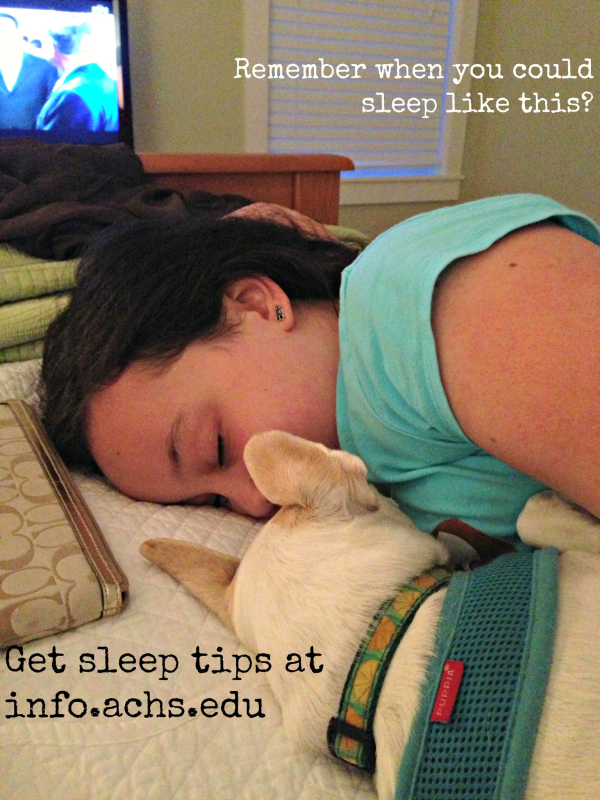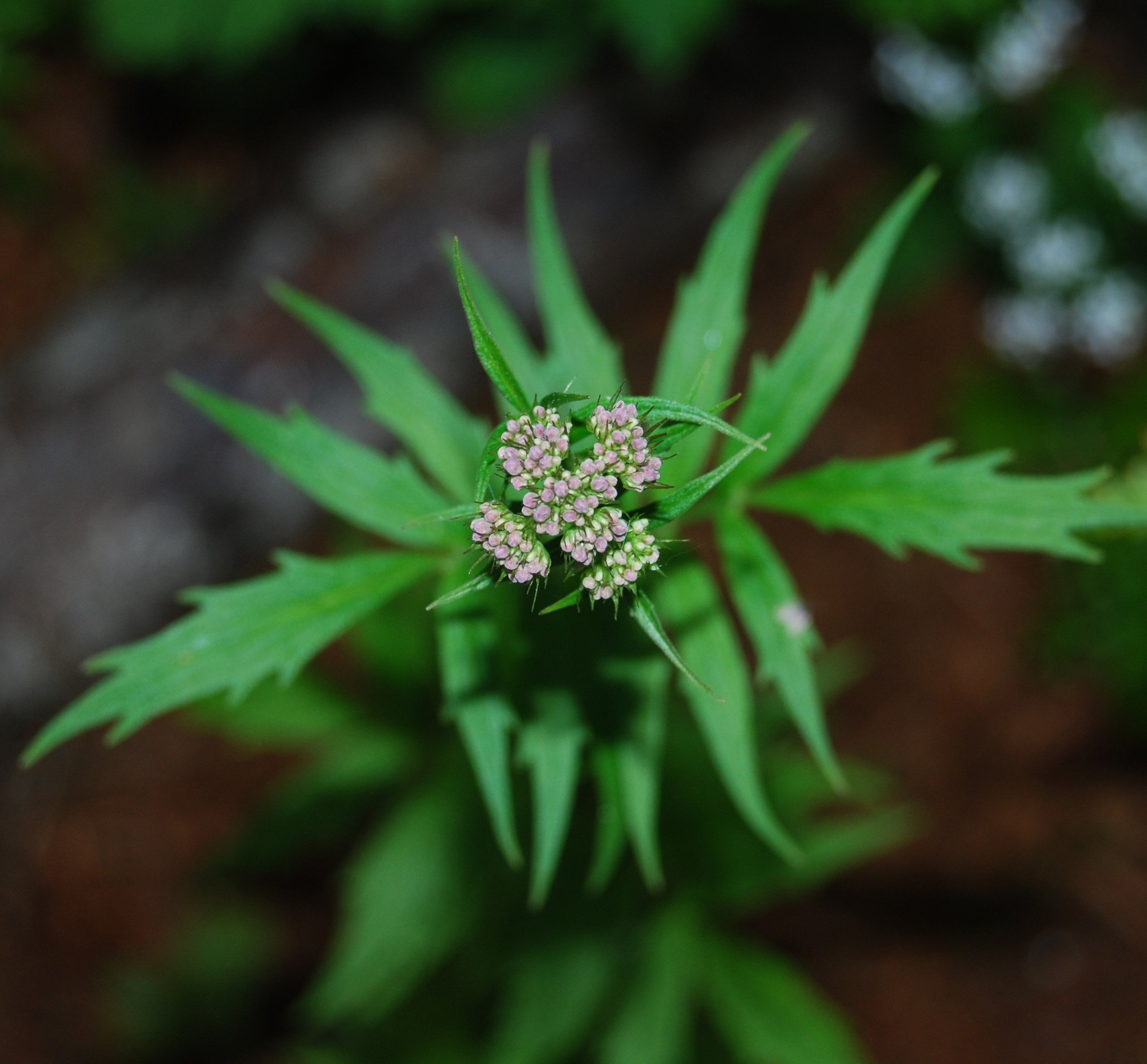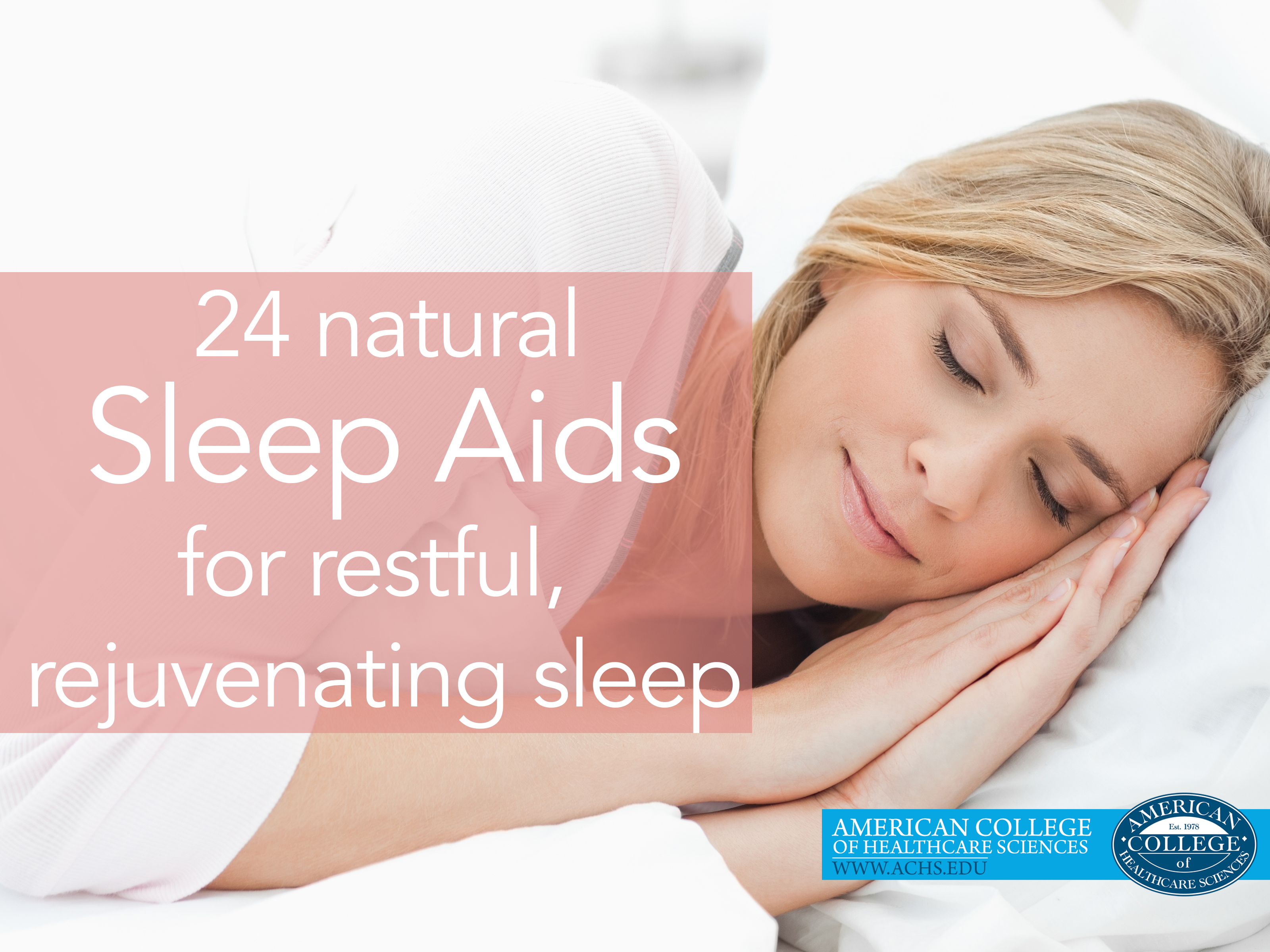I knew I'd been feeling tired. But when I saw the data [boom. Sexy data!] from my first night with my new Jawbone UP a couple of weeks ago, I was truly shocked. “Sweetie… You’re tired because you got 4 1/2 hours sleep!” said the voice in my head. The scary thing is, I have no idea how long this severe lack of sleep has been going on. But when I count the number of times I put milk in the pantry and crackers in the freezer, I think it must've been awhile!
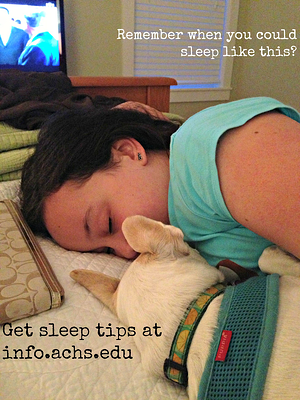 My lovely husband gave me my Jawbone UP for my birthday last month, and it has fueled my obsession with sleep. Like Arianna Huffington, who is a fellow sleep pusher, I'm a huge advocate of sleep (and vacations!) to avoid all sorts of health conditions, poor work performance, conflict and family life, and eating too many carbs.
My lovely husband gave me my Jawbone UP for my birthday last month, and it has fueled my obsession with sleep. Like Arianna Huffington, who is a fellow sleep pusher, I'm a huge advocate of sleep (and vacations!) to avoid all sorts of health conditions, poor work performance, conflict and family life, and eating too many carbs.
And it’s not just me. The CDC reports that “Insufficient Sleep Is a Public Health Epidemic”![1] And yet, what are we doing about it? I decided instant action was required. I’m a research junkie, and my research turned up a lot of information on sleep hygiene and getting a good night sleep. Interestingly, I knew most of it already, but I wasn’t following the “do’s” on a regular basis. Once again, it's the doing that's the problem, not the knowing! Was making a commitment to get more sleep, plus having the data from my new Jawbone UP to keep me honest, enough to really make the difference?
Yes! I’ve increased my sleeping hours dramatically —up to an average of 7 hours and 40 minutes in just two and a half weeks—and here’s how I did it (some are very simple, but you have to DO them):
- Figure out when you need to go to bed. Count backwards from the time you need to get up in the morning, and start your pre-bed routine an hour before that. In my case, I needed to be in bed at 9 o'clock—way earlier for me, as I often spend the evening tidying up the house and preparing for the next day, using my iPad to get a handle on the out-of-control email in box, catching up on my favorite TV shows (often until midnight!).
- No electronic devices within an hour of bed time. That means no TV, no computer, no laptop, no iPad, no iPhone, no iPod, no Nook, no Kindle … you get the picture. This means I can only read an actual book or magazine in bed. Or get down to business. And no lights on at night. Particularly no flickering LED lights. That also means no alarm clocks with blue light (we taped over them and the green smoke detector light). Adopt a paleo approach to your sleep—cave people didn’t have night-lights! Light at night messes with your hormones and might even make you overweight![2]
- Eat balanced meals throughout the day. Following a semi-zone like approach with a mixture of whole grains, protein, veggies, fruit, and good fats seems to be good for sleep. If you are a fan of food combining instead of zone, the general consensus is to have a carb meal for dinner. I use the MyFitnessPal app to track what I’m eating, and I make sure I’m getting a decent balance while staying within the realms of reasonableness. (Note that this is not a weight loss plan for me. I lose weight best on a lean protein and greens plan, but I’ve decided to put that on hold while I get the sleep situation figured out.) Since lack of sleep makes you crave carbs[3], it may be the insomnia that was standing in my way of success these past few months!
- Melatonin. I've had mixed results with melatonin in the past. During one particularly bad bout of insomnia, and after reading some book about high-dose melatonin (up to 20 mg daily) I turned to high-dose melatonin in an effort to get to sleep. I did get to sleep, but the next day felt like a walking zombie! This time around, I’m using just 500 micrograms each evening, 30 minutes before the desired time to go to sleep. It seems to be enough to trigger my own hormones into a sleep pattern. While melatonin is available freely at most grocery stores and health food stores, it affects everyone differently, and I am firmly in the camp that it's best to use the smallest dose possible to achieve the desired results. So start low!
- Calcium and magnesium. I've added an additional calcium and magnesium supplement daily. I take a really good-quality multivitamin, but since we don't eat a lot of dairy at home, extra calcium and magnesium can't hurt. Magnesium deficiencies are linked to muscle twitches, which can wake you up at night and make it hard to fall asleep. Many studies have shown that magnesium supplementation helps with many aspects of insomnia.[4] Make sure you choose one that has high bioavailability so your body can actually use what you're swallowing. We now stock my favorites at the Apothecary Shoppe College Store (open to the public), so go check it out if you’re interested.
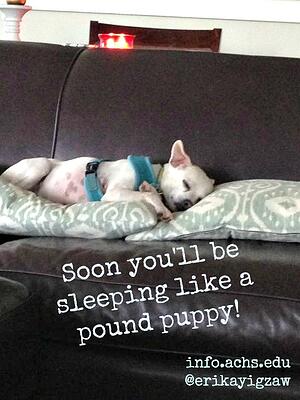 9. Try some aromatherapy. Yes, I’m biased as I have a lavender farm, but lavender Lavandula angustifolia has been shown to help you fall asleep faster and have better quality of sleep.[5]
9. Try some aromatherapy. Yes, I’m biased as I have a lavender farm, but lavender Lavandula angustifolia has been shown to help you fall asleep faster and have better quality of sleep.[5]
10. Try using a sleep tracking device, like the Jawbone Up, to track your sleep. The information we’ve found in just two and a half weeks made the $125 purchase price cheap! And, as an added bonus, it tracks your steps so you can make sure you're getting enough daily activity for general health and wellness. A huge benefit is being able to get an accurate sense of how well your interventions are working. You can experiment on yourself and figure out what unique blend of tips makes for an idea night of restorative sleep. Self experimentation is highly underrated in my opinion. While double blind placebo controlled studies can give us great data, what really matters is which intervention works for you!
Keep in mind that these are general tips on sleep hygiene for those of you having trouble sleeping. It is important to rule out any medical reason for your insomnia and get treatment if needed. Sleep apnea, for example, can dramatically lower life expectancy if not treated!
For links to my favorite resources and research on sleep and insomnia, visit my list.ly list here: http://list.ly/list/9SA-sleep-vs-insomnia-battle-of-the-bleary-eyed and I’d love to have you follow me on https://twitter.com/erikayigzaw
What are your favorite tips for getting a good night’s sleep?
This article is for informational purposes only. It is not intended to treat, diagnose, cure, or prevent disease. This article has not been reviewed by the FDA. Always consult with your primary care physician or naturopathic doctor before making any significant changes to your health and wellness routine.
[1] http://www.cdc.gov/features/dssleep/
[2] See Fonken, L.K., Aubrecht, T.G., Meléndez-Fernández, O.H., Weil, Z.M., & Nelson, R.J. (2013). Dim light at night disrupts molecular circadian rhythms and increases body weight. J Biol Rhythms., 28(4):262-71. doi: 10.1177/0748730413493862. Abstract at http://www.ncbi.nlm.nih.gov/pubmed/23929553
[3] See for example: Yamaguchi, M., Uemura, H., Katsuura-Kamano, S., Nakamoto, M., Hiyoshi, M., Takami, H., et al. (2013). Relationship of dietary factors and habits with sleep-wake regularity. Asia Pac J Clin Nutr., 22(3):457-65. doi: 10.6133/apjcn.2013.22.3.01. Free full text at http://apjcn.nhri.org.tw/server/APJCN/22/3/457.pdf; Beebe, D.W., Simon, S., Summer, S., Hemmer, S., Strotman, D., & Dolan, L.M. (2013). Dietary intake following experimentally restricted sleep in adolescents. Sleep, 36(6):827-34. doi: 10.5665/sleep.2704. Abstract at http://www.ncbi.nlm.nih.gov/pubmed/23729925
[4] Abbasi, B., Kimiagar, M., Sadeghniiat, K., Shirazi, M.M., Hedayati, M., & Rashidkhani, B. (2012). The effect of magnesium supplementation on primary insomnia in elderly: A double-blind placebo-controlled clinical trial. J Res Med Sci., 17(12):1161-9. Free full text at http://www.ncbi.nlm.nih.gov/pmc/articles/PMC3703169/ is just one of the most recent studies. Many more can be found at pubmed.com
[5] Cho, M.Y., Min, E.S., Hur, M.H., & Lee, M.S. (2013). Effects of aromatherapy on the anxiety, vital signs, and sleep quality of percutaneous coronary intervention patients in intensive care units. Evid Based Complement Alternat Med., 2013;2013:381381. doi: 10.1155/2013/381381. Epub 2013 Feb 17. Abstract available at http://www.ncbi.nlm.nih.gov/pubmed/22582680; Chien, L.W., Cheng, S.L., & Liu, C.F. (2012). The effect of lavender aromatherapy on autonomic nervous system in midlife women with insomnia. Evid Based Complement Alternat Med., 2012;2012:740813. doi: 10.1155/2012/740813. Epub 2011 Aug 18. Free full text available at http://www.hindawi.com/journals/ecam/2012/740813/

